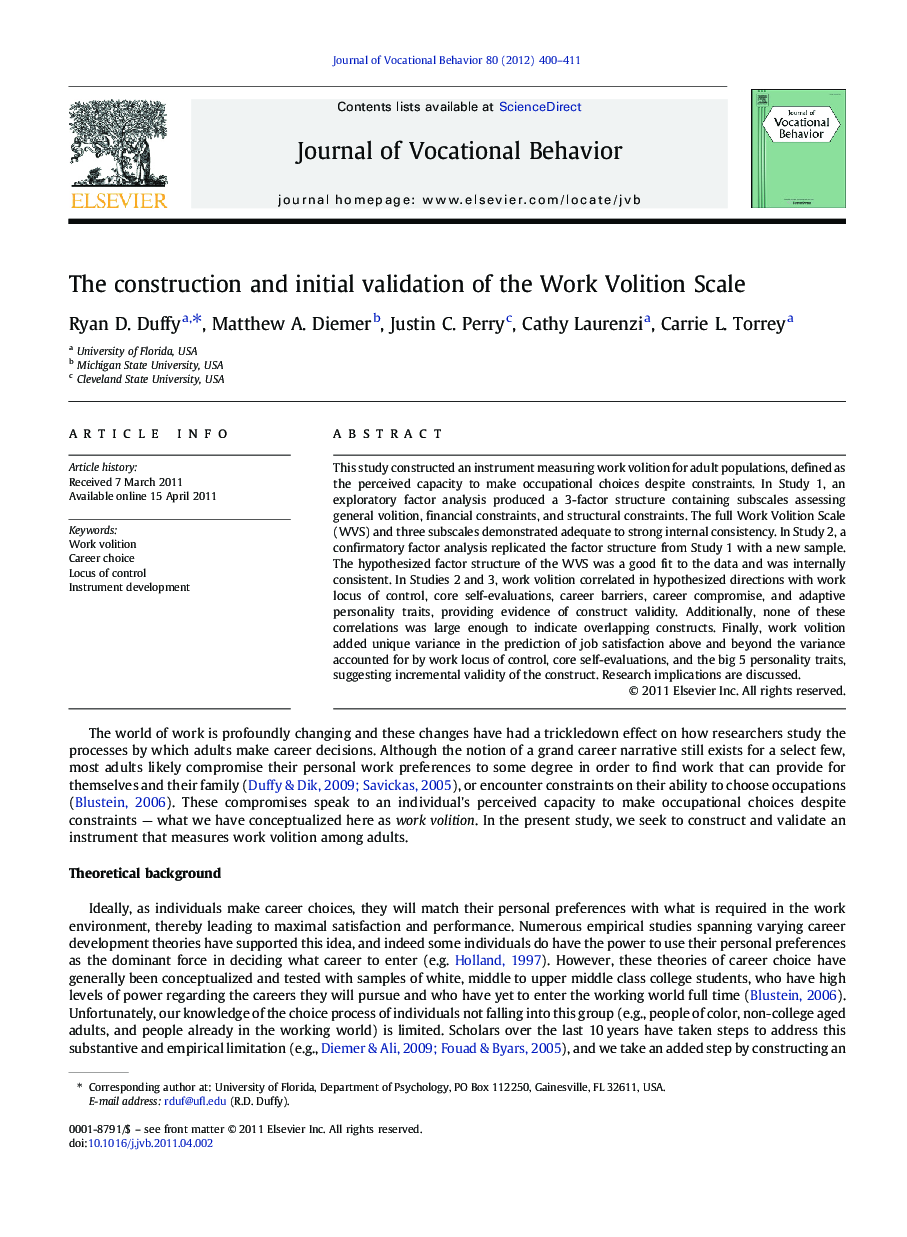| Article ID | Journal | Published Year | Pages | File Type |
|---|---|---|---|---|
| 887083 | Journal of Vocational Behavior | 2012 | 12 Pages |
This study constructed an instrument measuring work volition for adult populations, defined as the perceived capacity to make occupational choices despite constraints. In Study 1, an exploratory factor analysis produced a 3-factor structure containing subscales assessing general volition, financial constraints, and structural constraints. The full Work Volition Scale (WVS) and three subscales demonstrated adequate to strong internal consistency. In Study 2, a confirmatory factor analysis replicated the factor structure from Study 1 with a new sample. The hypothesized factor structure of the WVS was a good fit to the data and was internally consistent. In Studies 2 and 3, work volition correlated in hypothesized directions with work locus of control, core self-evaluations, career barriers, career compromise, and adaptive personality traits, providing evidence of construct validity. Additionally, none of these correlations was large enough to indicate overlapping constructs. Finally, work volition added unique variance in the prediction of job satisfaction above and beyond the variance accounted for by work locus of control, core self-evaluations, and the big 5 personality traits, suggesting incremental validity of the construct. Research implications are discussed.
Research highlights► The current study developed and validated an instrument measuring work volition among adults. ► Work volition is defined as the perceived capacity to make occupational choices despite constraints. ► Across 3 studies, the Work Volition Scale (WVS) was found to be reliable and valid, and was found to be assessing a unique construct. ► Work volition was found to add incremental variance in the prediction of job satisfaction above and beyond established predictors.
